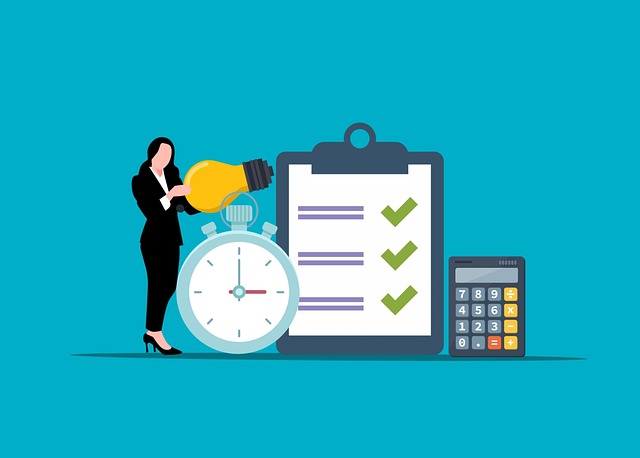In today's digital world, mapping and understanding customer journeys is vital for business success. Marketing automation tools help track and analyze prospect interactions from awareness to post-purchase. By optimizing each journey stage, businesses can leverage these tools to enhance experiences, drive conversions, and build trust through CRM management. Automated tasks like email campaigns and personalized offers streamline processes, boost efficiency, and foster sustainable growth by enabling data-driven strategic planning and targeted content delivery.
“Funnel optimization is a key strategy for sustainable business growth in today’s competitive market. This article explores powerful techniques to enhance your sales funnel and attract, engage, and convert more customers. By understanding customer journeys and pain points, you can design targeted funnel stages that drive conversions. Discover how marketing automation tools streamline processes, personalize content for higher engagement, and analyze data for continuous improvement—all essential elements for leveraging marketing automation in business scaling.”
- Understanding Customer Journey and Pain Points
- Designing Effective Funnel Stages for Conversions
- Leveraging Marketing Automation Tools for Efficiency
- Personalizing Content to Boost Engagement
- Analyzing Data for Continuous Improvement
Understanding Customer Journey and Pain Points

In today’s digital era, understanding the customer journey is paramount for sustainable business growth. Marketing automation tools play a pivotal role in mapping this path, allowing businesses to track and analyze each step their prospects take from initial awareness to post-purchase interactions. By delving into these journeys, entrepreneurs can identify pain points and areas of improvement, ensuring their products or services meet the needs of their target audience. This involves navigating through various touchpoints, from social media engagement to email communications, to optimize the customer experience.
Through effective marketing automation for business scaling, companies can implement tailored strategies that address specific customer relationship management (CRM) challenges. For instance, a well-crafted landing page optimized with compelling calls to action can mitigate common pain points related to low conversion rates. Moreover, integrating reputation management techniques into the funnel strategy helps in building trust and fostering long-term relationships, ensuring that businesses not only attract new customers but also retain existing ones through a seamless and satisfying journey.
Designing Effective Funnel Stages for Conversions

Designing Effective Funnel Stages for Conversions is a strategic art that involves carefully crafting each step to guide potential customers from initial interest to final purchase or desired action. Each stage must be optimized to address specific needs and pain points, utilizing marketing automation tools to enhance user experiences. For instance, an ideal funnel begins with awareness campaigns leveraging social media and content marketing to attract prospects.
The subsequent stages focus on nurturing relationships through targeted email sequences and personalized offers, often supported by a robust customer relationship management (CRM) system. This approach not only tracks customer interactions but also enables the delivery of relevant information at every touchpoint, increasing conversion rates significantly. As businesses scale, implementing sophisticated marketing automation becomes crucial for streamlining processes, ensuring consistent communication, and ultimately driving sustainable growth.
Leveraging Marketing Automation Tools for Efficiency

In today’s digital era, marketing automation tools are revolutionizing how businesses scale and grow. By integrating intelligent software designed to automate routine tasks, companies can significantly improve their efficiency and focus on strategic initiatives. These tools streamline processes like email campaigns, lead nurturing, and customer relationship management (CRM), ensuring every touchpoint with potential clients is optimized. For instance, automated landing pages can be crafted to capture leads effectively, while CRM systems organize customer interactions, providing valuable insights into purchasing behaviors and preferences.
Such automation not only saves time but also enhances the overall customer experience. By leveraging marketing automation for business scaling, companies can ensure their sales funnel remains efficient and responsive. Automated processes enable marketers to personalize communications at scale, fostering stronger connections with customers. This level of personalization, combined with data-driven insights, can lead to higher conversion rates and increased revenue, making marketing automation a game-changer for sustainable business growth.
Personalizing Content to Boost Engagement

In today’s digital era, personalizing content is a powerful tool for businesses aiming to foster sustainable growth. Marketing automation platforms enable targeted marketing strategies by analyzing customer data and behavior. By delivering tailored messages, brands can significantly enhance engagement levels. For instance, an AI chatbot integrated into an ecommerce solution can offer personalized product recommendations based on previous purchases or browsing history, creating a unique and appealing shopping experience.
This approach not only increases the chances of conversions but also encourages repeat business. Text message marketing is another effective strategy that leverages personalization. Sent with the aid of automation tools, text messages can include customized offers, updates, or reminders, capturing customers’ attention amidst the hustle and bustle of their inboxes. Such strategies ensure that businesses stay top of mind, building strong relationships with their audience.
Analyzing Data for Continuous Improvement

Analyzing data is a cornerstone of funnel optimization, enabling businesses to make informed decisions for sustainable growth. By leveraging marketing automation tools, companies can efficiently track customer interactions across various stages of the sales funnel. This involves understanding where potential drop-off points occur and identifying areas that require improvement. For instance, analyzing missed call text backs can provide insights into customer preferences and communication preferences, allowing businesses to refine their outreach strategies.
Marketing automation plays a pivotal role in this process by streamlining data collection and analysis, making it possible to scale business operations effectively. This is particularly beneficial for ecommerce solutions, where optimizing the customer journey from initial interest to purchase and post-purchase engagement is key to long-term success. Continuous improvement cycles, driven by data insights, ensure that businesses stay competitive and cater to their customers’ evolving needs.
By understanding customer pain points and optimizing each stage of their journey, businesses can create a seamless path to conversion. Implementing marketing automation tools streamlines processes, allowing for efficient lead nurturing and targeted campaigns. Personalized content engages audiences, fostering stronger connections. Continuous data analysis enables informed decisions, ensuring strategies remain effective in today’s competitive market. Embracing these funnel optimization techniques not only drives sustainable growth but also enhances customer satisfaction, making it a crucial strategy for any business aiming to scale using marketing automation.
